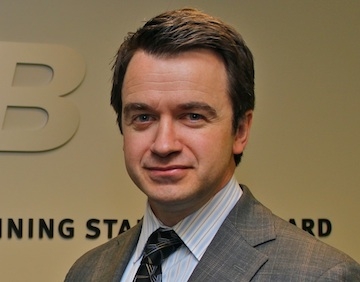
Consumers more confident with CFP pro than adviser

Consumers working with a Certified Financial Planner were more confident about achieving their financial goals than those with an adviser, a global study of over 19,000 people found.
The research, which was carried out in 19 countries, also showed people considered Certified Financial Planners to have greater honesty and integrity than other finance professionals.
It found 43 per cent of consumers felt confident of meeting their aims, compared to 31 per cent for advisers and 15 per cent for those who had no professional help.
The results were part of a report by the Financial Planning Standards Board, owner of the Certified Financial Planner certification outside the US.
CFP professionals earned higher ‘excellent’ ratings on all key characteristics compared to other types of financial professionals.
Consumers rate Certified Financial Planners as much as 16 percentage points higher than other financial professionals on characteristics such as:
• honesty and integrity (57 per cent versus 47 per cent)
• understanding my needs and goals (53 per cent versus 40 per cent)
• placing my interests first (51 per cent versus 38 per cent)
• providing me with relevant, timely information (50 per cent versus 39 per cent)
• using plain language instead of financial jargon (49 per cent versus 41 per cent)
• helping me to keep goals on track (51 per cent versus 35 per cent)
• helping to create actionable plans (51 per cent versus 35 per cent)
Most of the 19,092 consumers surveyed, however, said they relied on friends and family – not professional Financial Planners – for information on financial matters and planning.
Some 44 per cent were reliant on friends and family, while another 41 per cent relied on websites for financial information. Just 31 per cent said they turned to a Financial Planner.
Noel Maye, FPSB chief executive, said: “With close to 160,000 Certified Financial Planner professionals globally, FPSB and its member organisations have an incredible opportunity to connect individuals and families with competent, ethical and trustworthy financial planners who can help them take control of their finances and be more confident and secure in their financial decisions.”
The study also found 79 per cent felt it was either very important or somewhat important that Financial Planning be regulated.
Mr Maye said that in most territories around the world, Financial Planning is not regulated per se. He said governments, legislators and regulators should take note of consumers’ expectations regarding its regulation.
He said: “Without proper oversight of Financial Planning as a distinct professional practice, anyone could call him or herself a Financial Planner without having met appropriate professional standards – including the ethical obligation to place the client’s interests first that is required of all Certified Financial Planner professionals.
“If we are to restore consumer confidence and trust in financial markets and financial practitioners globally, we need to do so with a balance of compliance obligations and professional conduct expectations, developed and enforced by professional financial planning bodies, such as the organisations that are members of FPSB’s global network.”
GfK, a global research firm with extensive experience in the financial services sector, surveyed either primary or shared household financial decision-makers.
